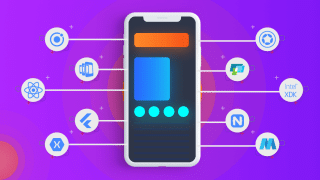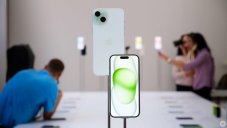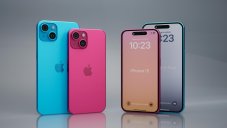Alleged iPhone 11 Pro Passed Though Geekbench With Impressive Scores
Karamchand Rameshwar - Sep 13, 2019

If the Geekbench listing of the iPhone 11 Pro is to be believed, the iPhone 11 Pro has a higher benchmark scores than any other Android flagships.
- Apple Kills Original HomePod, Focusing On HomePod Mini
- iPhone 12 Color Is Fading Away Quickly And No One Knows Why
- POCO X2 vs POCO F2 Pro: Reasons Why POCO X2 Is A Better Choice
Apple has recently announced the iPhone 11 series, all of which are driven by the new A13 Bionic chipset. The brand claimed at the event that its chipset is the most powerful one you can find in a smartphone. Apple chipsets have long been considered to be slightly better than its Qualcomm counterparts, and it seems that is also the case with the A13 Bionic. An iPhone device believed to be the iPhone 11 Pro just passed through Geekbench with an impressive score.

As mentioned, all three models in the iPhone 11 series come with an A13 Bionic chip. Aside from better performance, the brand also claimed that the iPhone 11 Pro has an additional battery life of up to 4 hours, while it is 5 hours for the iPhone 11 Pro Max. The iPhone 11 Pro in the Geekbench listing runs the latest iOS 13 and packs 4GB of RAM, which is still good for an iPhone because iOS does not require a lot of RAM to work with. However, the benchmark test on Geekbench only deals with the CPU, so RAM is not really a matter here.

Moving to the scores, the iPhone 11 Pro did exceptionally well to the point that none of the Android phones have a higher score. The handset achieved a score of 5,472 points in the single-core test, which is much higher than any Android-powered flagship devices, including the ROG Phone II Ultimate Edition with the Snapdragon 855 Plus SoC. The handset is also much more powerful than the Galaxy Note 10+ with the Exynos 9825 SoC. As for the multi-core test, it scored 13,769 points, which is way higher than the competition.
When it comes to gaming, app launches, and a few other aspects, the iPhones have always delivered a great performance. And it seems the A13 Bionic will still help iPhones beat its Android counterpart for a while. However, with 4GB of RAM, the iPhone handsets might not be as good as the Android flagship smartphones with more than 6GB of RAM. Smartphones require a higher amount of RAM so that they can keep more apps in memory. If not, whenever users go back to an app, they will have to restart it.
Featured Stories

Mobile - Dec 04, 2023
Most Widely-Used Cross-Platform Mobile App Development Frameworks

Mobile - Sep 28, 2023
Why iPhone 15 Costs A Lot Even Though It's Made in India?

Mobile - Aug 15, 2023
4 Ways AI Could Change The Mobile Gaming Industry

Mobile - Aug 09, 2023
Apple iPhone 15 Launch Date in India, Price, Specifications & More

Mobile - Jul 28, 2023
Best Gaming Smartphones In 2023 Game Enthusiasts Should Know

Mobile - Jul 28, 2023
Which Smartphone Has The Best Camera 2023?

Mobile - Jul 12, 2023
Samsung Galaxy F54 5G Price in India (July 2023)

Review - Oct 18, 2022
Online Gambling in India is Flourishing

Mobile - Sep 27, 2022
Three Reasons Why the Gaming Community is Focusing more on Playing Mobile Games

Mobile - Sep 22, 2022
Comments
Sort by Newest | Popular